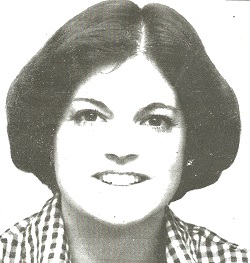Back Pain Will Cost Australia Billions, but Rx Opioids Dismissed as a Remedy
/By Crystal Lindell
A new study is sounding the alarm about lost worker productivity in Australia caused by chronic back pain, but an inexpensive remedy is being dismissed as “low-value or harmful.”
Published in JAMA and led by researchers at Monash University, the study projects massive losses in productivity in Australia caused by long-term back pain. In 2024, nearly 3 million Australians had chronic back problems. That’s projected to grow to nearly 3.3 million by 2033.
The researchers estimate that back problems will result in an estimated loss of 3.4 million productivity-adjusted life-years over a 10-year period. That equates to a loss of more than $638 billion in Australian dollars in the country’s gross domestic product. That’s about $414 billion in US dollars.
That’s a lot of lost productivity and money. Just a 10% reduction in the number of workers with long-term back problems would save over $41 billion Australian dollars
“Substantial economic gains could be achieved from reducing the prevalence and impact of the condition,” wrote lead author Sean Docking, PhD, a health economist at Monash University. “Action is needed to reduce the prevalence and burden of long-term back problems, with a focus on better-quality care and supporting people of working age to remain in the workforce and working productively.”
Indeed, there is a need to reduce the “impact of the condition.” I completely agree. However, while the authors call for interventions, they ignore an obvious tool that used to be widely available in Australia until 2018: codeine.
That’s when Australia made codeine available by prescription only. Until then, the opioid was sold over-the-counter, and no doubt was often used to help people with back pain get out of bed, go to work, and be more productive.
While pop culture has often crafted a view that opioid medications are sleep inducing and that people who take them are lazy, the reality is that millions of people take them so that they can work and be productive. That’s especially true for mild, low-risk opioids like codeine.
The Monash researchers also point out that calling in sick and working less creates “considerable financial stress and may disproportionally impact already disadvantaged communities.”
Again, I agree. Not being able to work because of chronic pain can definitely result in a huge financial burden. And effectively treating that pain can literally make it possible for people to continue working and not rely on public assistance programs.
Unfortunately, rather than addressing this or offering practical solutions, the researchers dismiss all opioids as a “low-value” care option. Instead, they recommend “high-value” care, which basically consists of vague advice to “stay active” and get back to work as soon as possible.
“A major way of addressing the burden of long-term back problems is to reduce the proportion of individuals who receive low-value or harmful care,” researchers said. “However, contrary to evidence-based guidelines, low-value care is prevalent. Examples of low-value care have been associated with longer absences from work. By contrast, high-value care could prevent chronicity, improve patient health outcomes, and result in productivity gains that benefit society.”
Perhaps the use of opioids is associated with “longer absences” because the pain medications are only given out when patients have severe back pain and really should stay at home.
It’s frustrating that, like many pain studies these days, the Monash researchers found a way to work in a negative view of opioids and suggest that they don’t “benefit society” or improve patient health.
The fact that they left out how the crackdown on opioid prescribing contributes to lost productivity is also disheartening, especially when opioids are an inexpensive remedy.
When people have adequate pain relief, they can be productive. When they don’t, they can’t. Chronic pain patients understand this. Now we just need medical professionals to understand it too.














